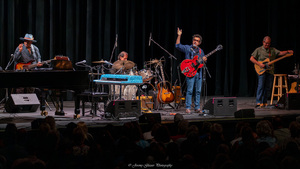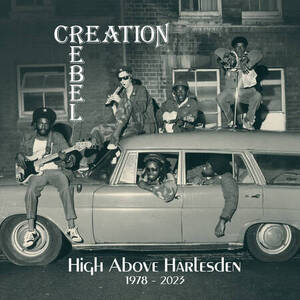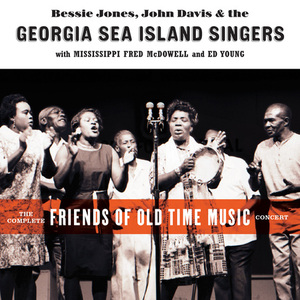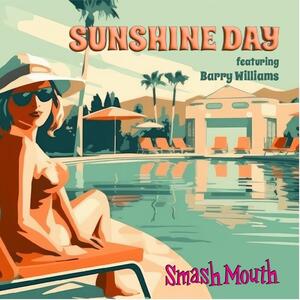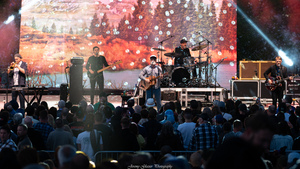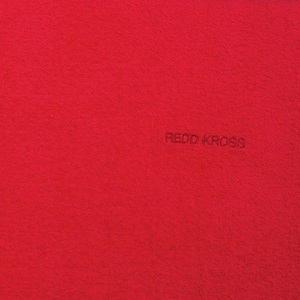“Schlegel Title”
Christopher Schlegel
Truth Against The World
Ed Furniture
He is an intellectual. He is an individualist. An intense fan of Ayn Rand. His last name means “Hammerhead” in German. His uncompromising and intimidating manner of “doing everything he does” can best be summed up as a mixture between a Klingon and Ludwig Van Beethoven. It would be best not to start a small-talk conversation with him in a grocery store. Those who are even brave enough will be met with a quick, cold, efficient conversation-ending answer… something along the lines of: “You are done talking to me. Have a nice day.” Unless you have something interesting to say, don’t bother. He is here on Earth to write music, smoke cigarettes, and watch hockey. Nothing else matters.
He started out his music career as a very volatile, angry, short-tempered, idealistic guitar teacher, playing in various alternative rock bands around Florida. Yelling at “useless fucking idiots” by day and studying orchestration/epistemological hierarchies/physiology/delivering newspapers by night (only stopping briefly to clear the road of hazardous objects) afforded him the luxury of a small home-based MIDI recording studio and a Thomas Alva Edison sleep schedule. He has now relocated to the beautiful countryside of Tennessee and established a mail-order record label called “Truth Against The World,” through which he markets his own brand of computer-sequenced (for now) music masterpieces.
• •
What is the purpose of your music?
In the broadest sense, the purpose of my music is to actualize my potential as a benevolent, heroic, virtuous human being. More specifically, I am using my existence to create perfection in a context that is of great value to me: Music. When I compose, I am making music the way I think music ought to be, music I always wanted to hear, but, with very few exceptions, no one has ever done. I consider the music I have worked on for the past five years to be Romanticism, because it is not aimed at or concerning with trivial, incidental, boring, imperfect, ordinary, everyday ideas and events. It is instead, about larger than life, gigantic, towering, exceptional, beauty, grandeur, unstoppable determination and exaltation that is possible to man. Overall, the purpose of my music is to provide a soundtrack for the existence of man at his best.
What are some of the elements that make your music unique?
In a conceptual musical sense, I am a descendent of Beethoven: large scale drama, passion, strong thematic sense, very noble and heroic ideals, complex musical ideas. Historically, Mahler supposedly “carried Beethoven’s symphonic ideas to their full and logical conclusion.” I do enjoy Mahler’s work, but this point of view is only true in the sense that he only expanded upon the ideas that Beethoven already presented. Harmonically, Liszt and Rachmaninoff created new structures. Rhythmically, Stravinsky was something entirely new and brilliant.
To differentiate between other composers and myself, I will take a few specific examples. Harmonically, Beethoven, Stravinsky, and others have used the progression I-bV as segue, intro, and/or background chord progression information. I also use this progression, because I like the sound of it. One difference, however, would be that I also use it as main thematic material as well as simply a part of a larger chord progression, such as I-bV-bii-V, that contains two separate tritone relationships with a phyrgian dominant to ionian modulation. Debussy was fond of basing a section of a composition on two remotely related chords, then, providing melodic and harmonic information over these chords in an ambiguous, bitonal fashion. I find the two remotely related chords idea useful, however, I approach it in a different way by using climbing or falling inversions underneath remotely related modes that shape and refine the specific motion of the chords.
One of my chord progressions contains two chords that rise in inversions of i-biii (min, maj 7) and over that as melodic information I used a Dorian mode (with an added flat five) rooted on the first chord, then, over the second chord I alternately use harmonic and melodic minor rooted on the second chord. I have used this progression to go into a theme based on Lydian dominant which fits quite nicely because Lydian dominant is a naturally occurring mode of melodic minor. Traditionally, the obvious chord to use right before a resolution is the V. I have learned how to use the IV, bV, bII7, II, bII, bii and many other chords to work as a wonderful and flowing pre-resolution chord.
An example that illustrates my rhythmic uniqueness is my particular sense of syncopation. I like to use phrases that are spaced such that the primary or secondary rhythmic pulse is carried over to the next measure and starts again before that next measure is complete. It is a type of polyrhythmic fugue-styled shifting. In 4/4 time signature, I have started on the upbeat of 4 with three sixteenth notes. This creates a stereotypical galloping figure. But, the next variation will start on the down beat of 1. Or if I use eighth notes and start on the down beat and the upbeat of 1, rest on the downbeat of 2, then, start this 1/8 note, 1/8 note, 1/8 rest pattern again on the upbeat of 2 the pattern doesn’t repeat itself until after the third measure. Typically, a rhythmic figure repeats itself after four full measures of 4/4. When I combine this pattern with more than one instrument, each one coming in a full measure, or less, after the previous (fugue fashion) things get interesting, complex, wildly exciting, driving and agitated very quickly.
In my sixth symphony an interesting rhythmic figure that keeps popping up in various forms is: 1/16 note, 1/16 note, 1/16 rest, 1/16 note, 1/16 rest, 1/16 note, 1/16 note. Thus, in the space of 2 beats I can alternately stress the downbeat then the upbeat. I also use scales of my own invention, some of which I have never heard anywhere else. For example, one of these scale patterns is: 1, m3, M3, #4, 5, M6, m7. Melodically, I love the way it sounds. Harmonically, it produces a lot of diminished chords, which I am also fond of. These are some of the elements that make my music unique.
Do you intend to make a lot of money?
Money is a wonderful tool. I want to make as much money as I can, as long as I make it honestly. Politically, I am a capitalist, therefore, ultimately, as far as money is concerned, all I really want is the freedom to make money doing what I love: trading my best effort to others that find it of value.
What is your take on atonal music?
I have taken considerable time and effort to learn about and analyze all types of music. Atonalists (historically “Expressionists”) like Schoenberg, Webern, and Berg organize the materials in sections and whole compositions to be as harmonically and rhythmically disturbing as possible. My “take” on this is that it is completely pointless. Serial, musique concrete and aleatoric (“chance”) composers like Stockhausen, Cage, and Schaeffer are also representative of this same situation. The fundamental problem with all of these types of “modern music” is that they erroneously assume one narrow concrete element of music and/or sound should be used as an abstract principle. This reverses the proper epistemological order of musical composition.
“schlegel”
In atonal music, for example, the single concrete goal is to create mentally unintegratable patterns of dissonance, integratable consonance is apparently not allowed. In serial music, the goal is to use every chromatic tone before you can repeat one of the tones regardless of whether or not you think repeating one might sound good. In either case, these techniques deliberately avoid organizing information in a way that might simply sound good. There is always some bizarre rule or set of rules that gets in the way of going straight to the questions a composer should ask himself: “Do I like the way it sounds? Does it fulfill my intention?” The serial composer’s first concern is not “Do I like how it sounds?,” but rather, “Did I use all the notes yet?” The atonal composer’s first concern is to avoid consonance, thus, immediately, before he even starts, certain harmonic possibilities are “off limits” to him. Chance music and musique concrete are based on sounds and notes occurring randomly, thus, immediately the “composer” can have no deliberate intention of how his “composition” will turn out.
Consonance and dissonance are simply tools that the composer should always have at his disposal. I don’t want to be told I can’t use a C# because I already used it and I haven’t yet used all the other notes. I don’t want to be told I “have to” or “can’t” use a major chord or a diminished 7/b9 chord. Atonal and serial music is like saying, “You can have an engine with no car OR you can have a car with no engine, BUT NOT BOTH.” How the hell do you expect to get anywhere? Also, there is nothing “modern” about these ideas. In Plato’s Republic, the grandfather of most conceptual bullshit says, “Only the Dorian and the Phrygian modes should be used in music.” Again, before the composer even starts, he is supposed to be limited. What if you like the sound of the Mixolydian mode? What if the Lydian mode best fits your sonic intention? Too bad, says Plato, those are off limits, you are not to use them. After having studied atonal music, I have no further interest in it. I just drop it in the toilet and flush.
What are some currently existing pop/rock bands that you enjoy? Why?
Van Halen, Deep Purple, Aerosmith, and Metallica are all “currently existing.” However, I don’t enjoy their “current” work. I do enjoy some of their older work: Van Halen (first album, Fair Warning), Deep Purple (Made in Japan, Perfect Stranger, things with Ritchie Blackmore), Aerosmith (Toys in the Attic), Metallica (Master of Puppets). I hear all the latest pop groups when students bring in CD’s for me to figure out how to play them. I occasionally hear a chorus, chord change, riff, or small part I like. The last whole pop song I heard was something by the Squirrel Zipper Nuts. Overall, I suppose I don’t enjoy any “currently existing pop/rock bands” because what I have heard is boring, undramatic, trivial, and pointless. I don’t know if Sir Millard Mulch is pop or not, but I enjoy most of that.
Describe the proper function of percussion instruments.
Their proper function is the same as any musical instrument: To provide useful, coherent, integrated melodic, harmonic, rhythmic, and thematic information. One point of elaboration: classically, percussion instruments are divided into two categories: ones with specific pitch, and ones with indefinite pitch. I do not regard the second category as a proper conceptual division. By its nature, EVERY sound has a pitch (or several pitches, fundamental, and/or overtones). Cymbals and snare drums are typically placed in this category. However, I have noticed that melodically and harmonically they can be used and made or tuned to provide a satisfactory as well as an unsatisfactory pitch relative to the context in which they are placed. Therefore, I do not buy the “indefinite pitch” idea. It sounds, to me, like a lazy cop-out. I am pleased that manufacturers produce a variety of different sounding cymbals and snare drums that can be tuned.
What new music projects are you working on?
I am currently working on my seventh orchestral symphony, my second piano concerto, and various short orchestral pieces. Conceptually, I am working on extended chordal harmonies, finding new ways to mix traditional modes and altered scales (and their modes) together and finding new ways to integrate melodic and harmonic consonance and dissonance. Whenever I have time, I am working on guitar-based rock type songs (large and small scale). I am also interested in getting into scoring music for film, thus, my experiments with short orchestral suites.
Why did you quit playing in bands?
Because by definition a band contains more than one person! I got tired of trying to get other people to perform my ideas properly. I was bored with the slow pace of getting a band to learn new material I had written and practicing the same damn thing over and again until everybody knew how to play it correctly, so that we could finally move on to something new. The worst part was the democratic process of hashing over ideas. I didn’t present an idea unless I knew how I wanted it done. Then, sometimes, I would be at the mercy of someone else’s idea of how to change my idea to make it “better.” I told them to not use my idea or else come up with their own idea. I exited the last band I was in because the other members were sick, tired and fed up with my uncompromising individualism. And rightly so; after all, what the hell was I doing in a band situation in first place if I didn’t want other people trying to change my musical ideas? I might some day work in a band context again on the conditions that everyone has strictly defined roles and a dependable work ethic.
How do you work the philosophy of Ayn Rand into your musical theory system?
I consciously integrate large abstractions, such as Justice, Determination, Values, Virtues, Morality, etc., into musical terms in order to present these abstract concepts that I am interested in as perceptual concretes (a work of great art) to be experienced right before your ears. To take one specific example, in order to create an heroic sounding chord progression I have used I-bIII-bVI. Very powerful sounding! And, the first two chords form a modulation that implies a melodic shift between a mode with a major third then a mode on the same root with a minor third. Making use of this observation to create a melody stressing this modulation reinforces the idea. If I want it to sound tight and determined I might harmonize the melody in diatonic thirds or perfect fifths. If I want it to broader, perhaps more “open and embracing,” I harmonize it a sixth below the main line. If I want the whole thing to sound noble I might give the melodic line to the brass (French horns, trumpets, trombones), if I want it to sound more lyrical, I will use strings.
To add an aggressive edge to it, I might combine high strings and brass while confining the low strings and brass to a forceful staccato rhythmic underpinning statement. The philosophical concepts that I choose to concretize with music are based on my philosophical convictions. I am an objectivist; Ayn Rand discovered the principles that objectivism is based on, so, that is the primary basis of the relationship. I also find her work as an artist very inspiring, and I want to create the musical artistic equivalent to her literary work. Ultimately, every musical and compositional tool, device and idea that I acquire is directly applied to the problem of musically concretizing objectivist premises.
What is your favorite city in the world, that you want to live in?
I don’t want to live in a city. I enjoy working in, visiting and being close to a city, but I prefer to live in a rural area. Most (supposedly) human beings irritate the hell out of me. When I go home, I don’t want neighbors, traffic, noise, people that can’t mind their own damn business knocking on my door, etc. My favorite city is St. Louis, MO, because, I grew up there, I have family and friends there, I know my way around, and it is the home of my favorite hockey team – Go Blues! ◼


